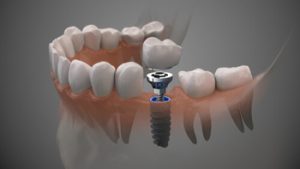When considering dental implants, it’s not just about picking a provider; it’s about making an informed choice based on a comprehensive price comparison. The cost of dental implants can differ widely, influenced by numerous underlying factors that many patients might not initially consider. When thinking about dental implants price comparison, understanding these variations is essential to making a decision that aligns with both your health requirements and your financial capabilities.
What Exactly Are Dental Implants?
Dental implants serve as durable foundations for fabricated teeth that closely mimic the natural function, appearance, and feel of real teeth. Usually, there are two key varieties: endosteal implants, which are directly implanted into the jawbone and generally made from titanium resembling small screws, and subperiosteal implants, located on top of the jawbone but beneath the gum line, suitable for individuals with insufficient bone height for endosteal implants.
How Much Do Dental Implants Typically Cost?
What Are the Key Determinants of Dental Implant Costs?
Understanding the cost of dental implants is crucial for anyone considering this permanent solution for replacing missing teeth. Dental implants offer a long-term benefit, but the price tag can vary widely. Here, we will delve into the key factors that determine the costs associated with dental implants.
Complexity and Number of Implants
The complexity of your dental condition and the number of implants you need play a significant role in the overall cost. Single tooth replacements will generally be less expensive than full mouth rehabilitations or multiple dental implants. Each additional implant increases the time and resources required, thus affecting the price.
Materials Used
The materials chosen for the implant and the crown have a significant impact on costs. Titanium implants are typically less expensive than zirconia options, and the choice of material for the crown—whether porcelain, ceramic, or composite—also varies in price. Higher quality materials generally command higher prices but offer better aesthetics and durability.
Geographical Location
Where you receive treatment significantly influences the dental implant cost. Dental implant prices can vary between different cities and countries due to differences in the cost of living, operational costs, and the competitive landscape in the area.
Dental Clinic and Dentist’s Expertise
The choice of clinic and the dentist’s expertise also affect dental implant costs. Experienced dentists might charge more, but they often provide a higher level of care that can lead to better outcomes and fewer complications. The clinic’s reputation and the technologies they employ can also contribute to higher dental implants cost.
Additional Procedures Required
Often, dental implant procedures require additional treatments, such as bone grafting, if there isn’t sufficient bone to support the implants. The need for procedures like extractions, bone grafts, or sinus lifts adds to the overall cost of the implant process.
Insurance and Financing Options
By considering these factors, you can better understand and anticipate the costs involved in getting dental implants, making it easier to plan your treatment and financing. Always consult with a dental professional to get a precise estimate based on your specific circumstances.
What Steps Are Involved in the Dental Implant Process?
Here’s what one should expect during the dental implant surgery, broken down into systematic phases:
Initial Consultation and Planning
The first crucial step involves a detailed consultation with your dental professional, where they assess the health of your gums and jawbone. This assessment is vital to determine your suitability for implants and to plan the procedure tailored to your dental structure. This phase may involve X-rays or 3D imaging to map out the precise implant placement strategy.
Preparation and Bone Grafting (If Necessary)
For patients with insufficient bone density, a bone graft might be necessary to provide a solid foundation for the implants. This stage ensures that your jawbone is robust enough to support the implant – a process that may require several months for the graft to merge adequately with the existing bone.
Implant Placement Surgery
During this surgical phase, the dental implant, which is a titanium post, is precisely placed into your jawbone beneath the gum line. This procedure is generally performed under local anaesthesia, and sedation options are available to manage comfort and anxiety. After the implant is installed, a period of healing is required for it to integrate fully with the bone, a process known as osseointegration.
Healing and Osseointegration
Osseointegration is crucial as it allows the implant to become a permanent part of your jaw, providing stable support for the artificial teeth. This phase can take several weeks to months, during which you might be fitted with temporary crowns to facilitate daily functions like eating and speaking.
Abutment Placement and Impressions
Once osseointegration is complete, an abutment is placed on the implant. This element operates as a junction between the implant and the prosthetic tooth.
After the abutment is installed, impressions of your mouth will be taken, which are used to create the final tooth restoration – be it a crown, bridge, or denture.
Final Prosthesis Placement
The ultimate step involves securing the tailor-made crown, bridge, or denture. This prosthesis is specifically designed to align with the colour and size of your original teeth, ensuring a cohesive look with your dental aesthetics. Additional adjustments might be necessary to ensure a perfect fit and comfortable bite.
Follow-Up and Maintenance
After the placement of your new teeth, regular follow-ups are essential to monitor the implants and maintain overall dental health. Adequate oral hygiene and periodic dental check-ups are important for the sustained success of dental implants.
Through these steps, dental implants offer a durable and functional solution for replacing missing teeth, enhancing not only the visual appeal of your smile but also your oral health and functionality. If you’re considering this procedure, it’s essential to discuss all aspects with a skilled dental practitioner who can guide you through each phase towards achieving a successful outcome.
What Positive Outcomes Are Linked to Dental Implants?
Dental implants are a noteworthy investment in oral health, offering numerous benefits that impact daily life beyond basic tooth replacement. Here’s a comprehensive look at the myriad ways dental implants can enhance quality of life.
Sustaining Jawbone Integrity
Among tooth replacement choices, dental implants are unique as they support and stimulate the jawbone, averting the bone loss that commonly occurs with tooth loss. This process, where the implant post fuses with the jawbone, mimics the natural function of tooth roots, maintaining bone density and strength. This is vital not only for oral health but also for maintaining facial structure.
Restoring Full Chewing Power
Implants are robust, stable, and anchored directly into the jawbone, allowing them to withstand the forces of chewing almost like natural teeth. This capability lets individuals enjoy a diverse diet without restrictions, contributing positively to nutritional health and overall well-being.
Long-term Oral Health Enhancements
Implants have a standout feature: they do not require altering adjacent healthy teeth, a common necessity for fitting bridges. This factor significantly reduces long-term risks to surrounding teeth by preserving natural tooth structures, thus enhancing overall oral health.
Stability That Eases Communication
Unlike removable dentures that can slip inside the mouth and impair speech, implants are securely anchored. This stability helps in clear and natural speech, eliminating the fear of dentures slipping during conversations, which can be particularly beneficial in social and professional settings.
Aesthetics and Self-Confidence
Implants are designed to blend seamlessly with real teeth, enhancing a person’s smile and overall facial aesthetics. The confidence that comes from a restored smile is profound, impacting social interactions, professional opportunities, and personal comfort.
Simplified Dental Care
Caring for implants doesn’t require out-of-the-ordinary practices; regular brushing and flossing suffice. This simplicity aligns well with standard dental care routines, making it easier to maintain oral hygiene and health.
Choosing tooth implants is choosing to invest in a solution that offers comprehensive benefits for oral and general health. The decision to opt for implants can lead to a significantly improved quality of life, making them a worthwhile consideration for anyone looking to address tooth loss. For tailored advice and to explore how implants could benefit you specifically, a consultation with a dental expert is the ideal next step.
How Do You Ensure the Care of Tooth Implants?
Proper upkeep is paramount for ensuring the longevity and functionality of dental implants. Here, we provide straightforward steps to care for your implants effectively, ensuring they remain in excellent condition for years.
Daily Cleaning Practices
Optimal oral hygiene is essential for implant durability. Implementing thorough daily cleaning practices is the first line of defence against potential complications:
- Soft-Bristled Brushing: Gently brush around each implant using a soft toothbrush twice daily to avoid scratching the surface.
- Targeted Flossing: Utilise implant-specific floss or water flossers to remove debris from hard-to-reach areas around the implant structure.
- Non-Alcoholic Rinses: Finish your oral care routine with a gentle, non-alcoholic mouthwash to reduce bacterial growth without irritating the implant site.
Regular Professional Assessments
Consistent check-ups with a dental professional are vital:
- Biannual Check-Ups: Schedule visits every six months for implant inspections and professional cleanings.
- Immediate Attention to Discomfort: Report any discomfort or unusual changes around the implant area promptly to address potential issues before they escalate.
Lifestyle Adjustments
Certain lifestyle choices can impact the health of your implants:
- Quit Smoking: Smoking can hinder healing and decrease the success rate of implants.
- Mindful Eating: Avoid hard and sticky foods that can exert excessive force on implants.
Responsive Care Strategies
Stay proactive with your dental health by responding promptly to any signs of trouble:
- Prompt Response to Symptoms: Early intervention is key to resolving issues like swelling or persistent discomfort.
- Educate on Emergency Care: Understand what to do in case of an implant emergency, such as a loose crown or exposed implant.
Maintaining dental implants involves more than just routine cleaning; it requires a comprehensive approach that entails professional care, lifestyle adjustments, and responsive strategies to potential problems. By following these guidelines, you can enhance the lifespan and performance of your dental implants.
Begin Your Dental Implant Transformation Today
Note: Any surgical or invasive procedure carries risks. Before proceeding, you should seek a second opinion from an appropriately qualified health practitioner.
References:
dentistry.uic.edu/news-stories/5-reasons-why-dental-implants-are-so-popular
www.mayoclinic.org/tests-procedures/dental-implant-surgery/about/pac-20384622



